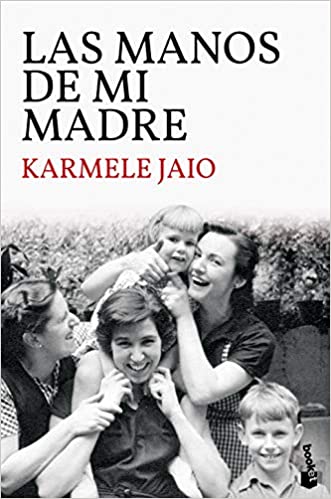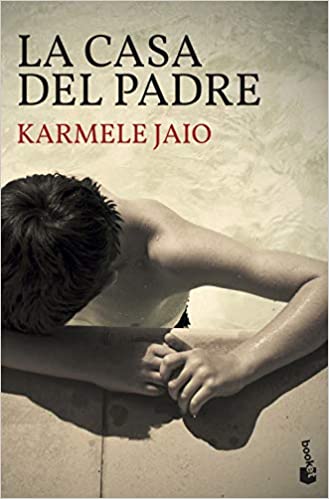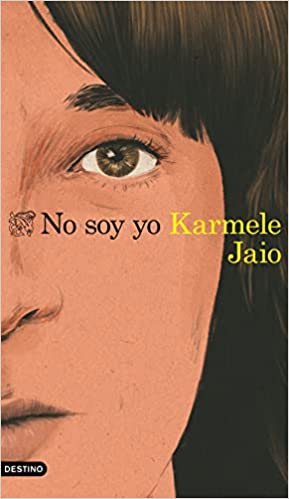You need to have the makings of a writer to approach a narrative that prioritizes emotional aspects without falling into sentimentality. AND Karmele Jaio He enjoys that virtue to address the most empathetic sensibilities in a forceful way, without any kind of fissure that trivializes or makes the narrative squeak.
And for that it is necessary, in addition to the already indicated skills of a writer, to have the conviction, the almost visceral need to tell something without the worst of censorship, the ones that one imposes on oneself. Writing to narrate is giving up soul, sweat and tears; everything else is a vacuous attempt to convey something, or a pretentious boast about having a book written.
How would Bukowski In his curious poem "So you want to be a writer", start writing only if something really burns you and pushes you to do it. The rest is wasting your time and surely making others waste it. That authenticity is what I'm talking about when I refer to Karmele Jaio who finds that motivation, that essential driving force, in each of his stories.
Karmele Jaio's Top 3 Recommended Novels
My mother's hands
There is some ancient memory in touch. And perhaps because we resort to this sense less often than we should, when we focus on that sum of sensations of heat or cold, of smoothness or roughness we receive, we can receive an overload of information. Especially about the passage of time in the hands of a mother ...
Nerea's life hangs by a very fragile thread. The latest blow hits him in a hospital: his mother's memory has been severely damaged and he hardly remembers anything.
Nerea lives absorbed by a job that she no longer enjoys, she regrets not being able to dedicate the time she deserves to her daughter and lately she feels that her marriage is pale. Now she also carries the weight of her guilt for not having been able to detect in time the crisis that her mother is suffering and she finds herself cornered by a turbulent story from the past. The precarious balance that held her against her is broken.
During the long waits at the hospital, he notices that his mother is clinging to a memory that forgetfulness has not been able to sweep away. This is how Nerea will discover a fundamental episode in her mother's life, while she is forced to confront her own past.
Father's house
Ismael is blocked. He has been trying to write his next novel for two years, but he can't produce more than lifeless drafts, and he falls short of the deadlines agreed upon with his publisher. Everything he writes is questioned, something that had never happened to him before. His situation is complicated the day his mother has an accident and Ismael is forced to spend every afternoon with his father to take care of him. Those hours will transport him suddenly to a moment that was frozen in his childhood and that Ismael has kept hidden among his memories until now.
Jasone is the first reader and proofreader of her husband's texts. She has lived dedicated to her family for years, and although she also wrote when she was young, she left him. In the last year he has stayed at night in front of the computer, and in secret he has begun to create again.
Each one will play with their secret in the midst of an emotional tidal wave in which silences, as almost always, will speak louder than the words themselves. Father's house He discovers the writer Karmele Jaio, in a novel that tells us about the ways to build and transmit masculinity and the enormous influence of gender in the lives of women and men.
It's not me
The worst of alienations is that kind of depersonalization to which we allow ourselves to be carried away with the inertia of the herd. The trick was to present a mirage as a real landscape of happiness and self-realization in the material that each person has at their disposal. And yes, in the feminine the matter even takes on more grotesque overtones. Because the release looks like a cosmetics advertisement.
In this book we enjoy an existentialist feminism, a perspective of the naked woman before herself to draw the soul in the mirror, where each one, be it a woman or a man, is judged, idealized, denigrated or even hurt, mixed of pathetic posed or deliberate Shakespearean soliloquy.
Karmele Jaio, the author of Father's house, presents us in his new book fourteen stories of women. They all belong to the same generation, are between forty and fifty years old, and are going through a critical moment in their lives.
We will discover them in that strangeness in the face of a changing body, anxiety in the face of evident aging, nostalgia for the idealized past and youth, the routine of marital relationships, the urge to take advantage of the time they have left, the feeling of not finding your place ... Those small emotional fractures of great importance in the daily life of any woman.



